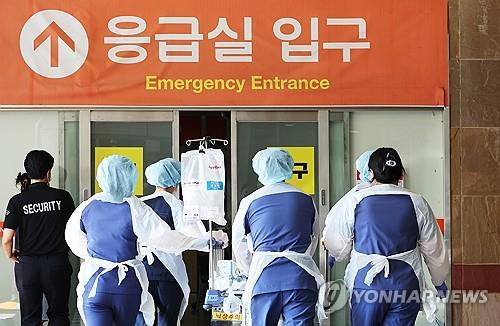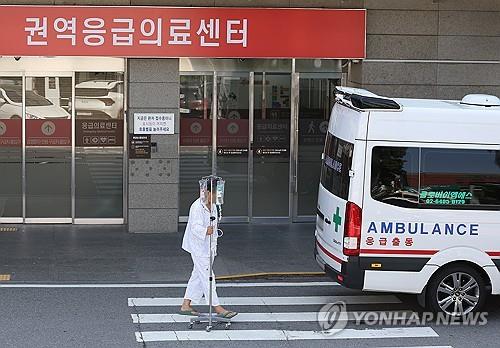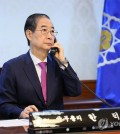- California Assembly OKs highest minimum wage in nation
- S. Korea unveils first graphic cigarette warnings
- US joins with South Korea, Japan in bid to deter North Korea
- LPGA golfer Chun In-gee finally back in action
- S. Korea won’t be top seed in final World Cup qualification round
- US men’s soccer misses 2nd straight Olympics
- US back on track in qualifying with 4-0 win over Guatemala
- High-intensity workout injuries spawn cottage industry
- CDC expands range of Zika mosquitoes into parts of Northeast
- Who knew? ‘The Walking Dead’ is helping families connect
Short-staffed hospitals curtail ER operations amid deepening health care crisis
The health ministry on Wednesday began deploying military doctors and public physicians to hospital emergency rooms suffering from staff shortages as a growing number of hospitals have partially suspended emergency care services amid deepening concerns about the public health care crisis.
The government deployed 15 military doctors to assist in emergency rooms of five hospitals, including Ewha Womans University medical center in Seoul and Ajou University Hospital in the city of Suwon, on the day, and plans to send an additional 235 military doctors and public physicians to other thinly stretched hospitals across the country by Monday, according to the ministry.
The move came as a majority of South Korea’s 13,000 junior doctors have left their workplaces since February in the form of mass resignations in protest of the government’s decision to drastically increase the medical school admission quota starting next year to address the shortage of doctors.
The monthslong action has put a strain on the country’s medical system, prompting major hospitals to cut back on surgeries, outpatient treatment services, and the operation of emergency room operations.
As of Wednesday, four hospitals, including the Ewha medical center and Kangwon National University Hospital in Chuncheon, have shortened operation hours of emergency rooms, up from three a day earlier.
The Ewha hospital has limited its nighttime operation on Wednesdays, and the Ajou hospital took a similar step on Thursdays.
Soonchunyang University Hospital in the central city of Cheonan also plans to partially suspend emergency care services for children, the ministry said.

“Hospitals are mobilizing medical staff for emergency care, but many appeared to have suffered mounting difficulties,” Second Vice Health Minister Park Min-soo told a press briefing.
He earlier told a radio interview that the government has been taking measures to disperse patients to different hospitals and it can overcome such challenges.
Doctors and some experts, however, have said mobilizing military doctors will only be a stopgap measure, and the health care system is on the verge of collapse.
“Military and public doctors will not be able to play a major role, as some of them are not well experienced, and nobody is sure about who will shoulder legal responsibilities for possible medical malpractices,” a hospital official said.

The situation is feared to worsen during the upcoming Chuseok holiday in mid-September.
St. Mary’s Hospital of the Catholic University in Seoul is mulling the suspension of nighttime ER operations during the holiday due to the shortage of medical staff, according to hospital officials.
Others point to a possible medical service vacuum in rural areas and for service personnel.
“When we mobilize public medical staff, we carefully consider the overall situation and take steps to minimize the impact on affected regions. We will continue to make all-out efforts,” a health ministry official said.
As part of the medical system reform, the Yoon Suk Yeol administration has vowed to increase the medical school admissions quota by 2,000 seats per year over the next five years or so to address a shortage of doctors, and it finalized a hike of some 1,500 students for next year.
Doctors claim that medical schools will not be able to handle the increased enrollment, which will compromise the quality of medical education and ultimately the country’s medical services.











